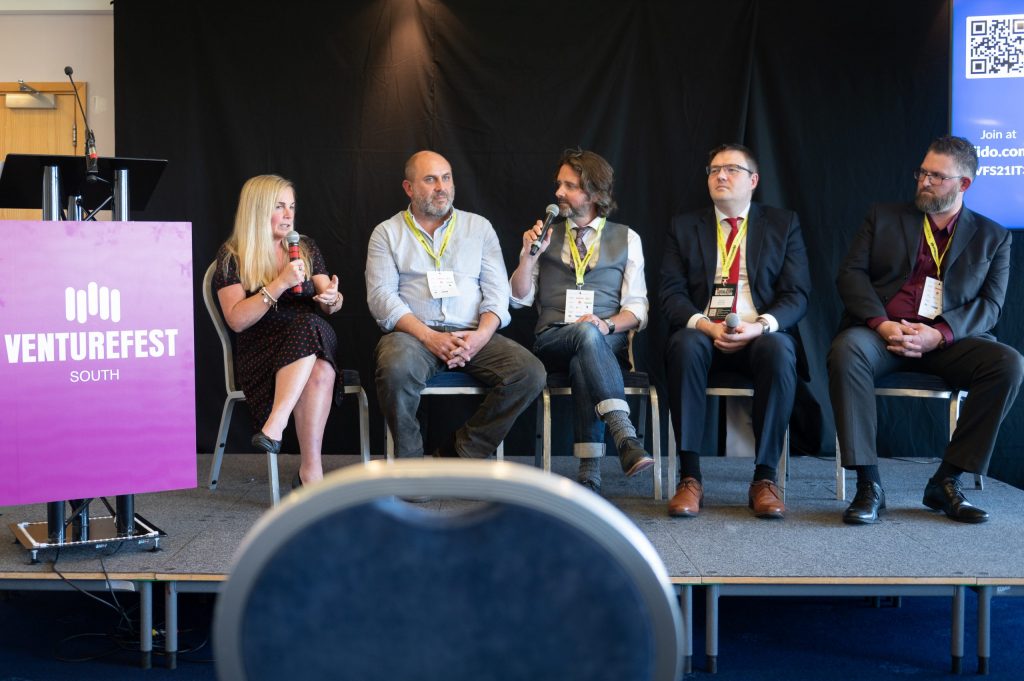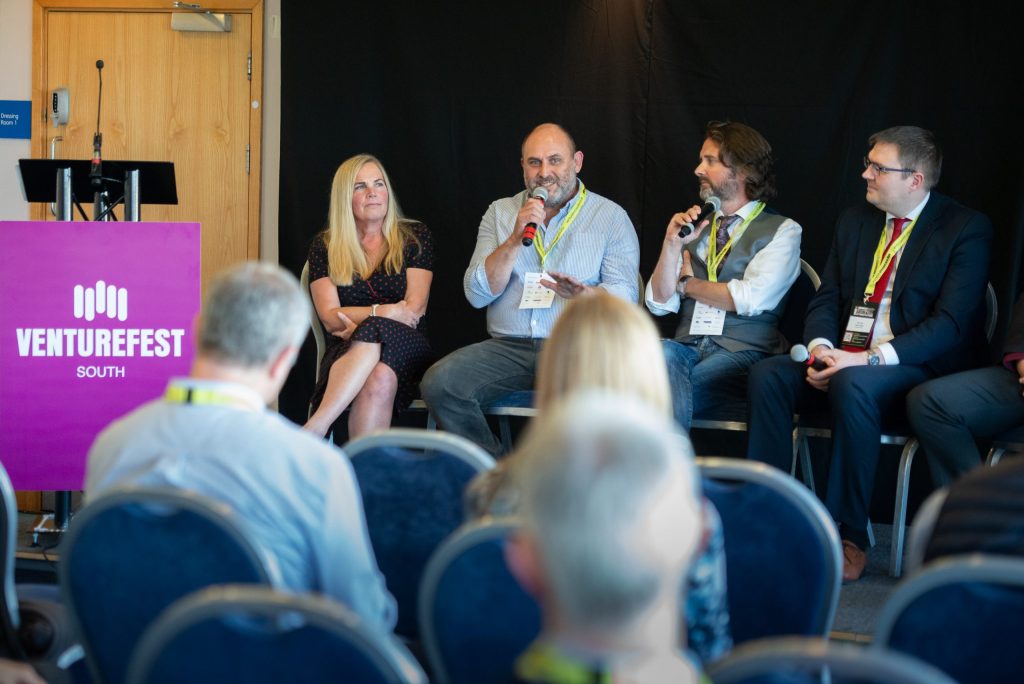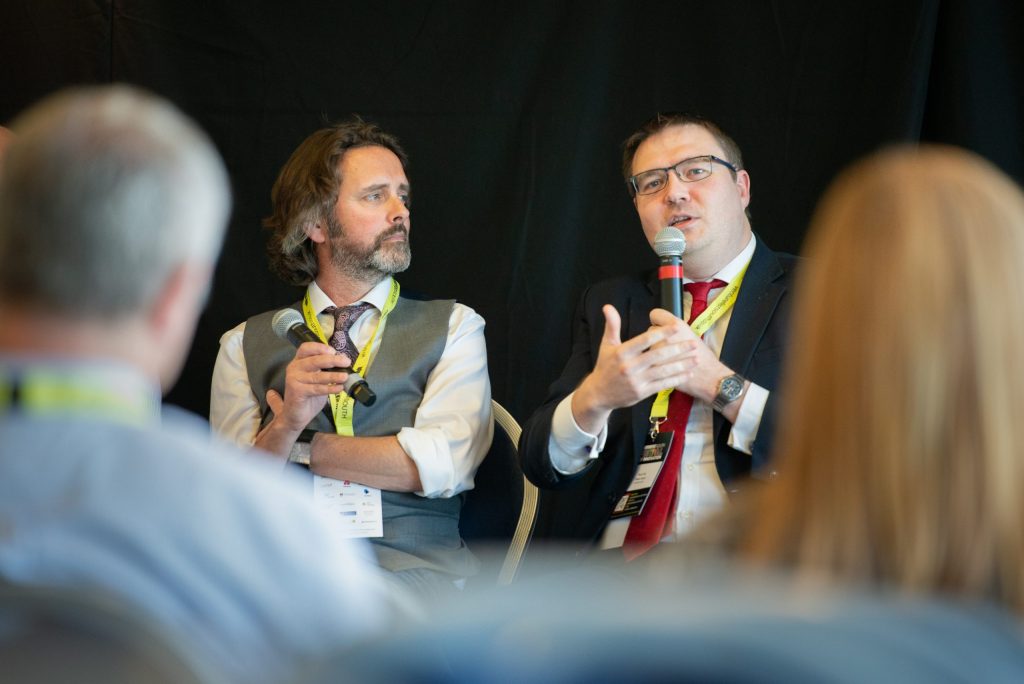Innovation. Yawn. Wake me when something new actually happens, amirite? Except, is the era of crisis slightly demanding a lot of it? Like, really it – green-revolution level it. So is it the perfect time for ‘ordinary’ businesses to level up what we even think the word means?
All images ©Carswell Gould 2021
The morning I was due to host a session for VentureFest South’s Festival of Innovation 2021 I cheekily tweeted that, secretly, no one really wants innovation, despite everyone name-dropping it at business conferences for decades, because it means changing one’s worldview and everyone’s faffing processes.
To which passionate mate Richard from Feria Urbanism replied that we don’t just not really honestly want it, we don’t even need it.
“We really don’t need innovation” he said. “The answers are already all around us. This isn’t nostalgia or an opposition to industrialisation, automation or computerisation. Just that advanced stage capitalism requires “innovation” for continued growth and that continued growth tends to be driven by a continued consumption of resources that we cannot sustain.”
I told him I would open the session with this as a quote. He asked for royalties, late-stage capitalist that he is. But he concluded with the point I had in my mind also:
“How we define innovation is critical here. Who creates that definition and why? What forces influence of that definition?”
Breaking barriers.
If there’s one phrase that I seem to have heard a lot lately, it is “breaking out of silos.” And a more regenerative view of the future will certainly demand a much more popular understanding of how inter-connected life on Earth truly is. But more than this, encouraging sustainability will mean actively breaking through cultural walls to learn each other’s sector languages and blend those perspectives. Stop just talking to your own people.
With a key sponsor of VFS21 being The UK’s Defence, Science & Technology Lab (DSTL), when Matt Chinn from the organisation stood up and said: “Hey, gang, I have a £1billion to spend – bring me your ideas” you could hear a lot of nice peace-loving people around the hall flinching and wondering how to break into the Ministry of Defence.
Breaking through old ways of doing things, old habits, is a culture change challenge. And indeed the primary problem facing our era of crisis, arguably, is economic culture – the way we value everything, like goggles we see the world through.
Innovation does indeed seem tied to our existing ideas of business success – namely “growth”.
But a reality check before we even shout “climate crisis!” may be this: 99% of all businesses in the UK are supposedly SMEs. Small. Local. ..Is this a clue to how we might innovate for sustainability? Us ordinary Fortune 8 billion lot.
Juxtaposing passions.
Our panel brought together different specialist perspectives on potential human futures, from bio research, to data, energy and cleantech community building. Some interesting key words fell out of our discussion, after each guest had presented their starting point, from their work.
Community and ownership, for example. And the reality that all business, all new ideas, all data have emotional contexts.
“How do you get people to change their mind?” asked Chris, from Knownow. “Storytelling. We love stories, we think in pictures, Telling compelling stories that give people hope, give them vision, let the cogs go and let them be innovative – everyone can be innovative. You don’t have to have a particular qualification, you just have to have imagination.”
While bringing a data perspective to sustainability, Chris is bang on for me there, obviously – understanding that emotional context we’re really doing everything in. And how useful, therefore, is the narrative principle of emotional truth, something we’re all instinctively keeping an ear out for everywhere.
It’s clear that you and I get passionate when we feel something affects us. When we own it. So how do we engender ownership?
Collaboration – that’s the invitation of Venture Fest, at its heart. Collaboration solves problems but crucially for a time of crisis it also builds communities.
“I think it’s about listening. Listening to people. “ said Petra from the DSTL. “What really are the drivers of our behaviours?”
The resulting conversation was a rich one to spend some time with, so I recommend you do.
Amid a flurry of truly inspiring innovations happening all over society as the green revolution begins to flower, is the real opportunity of sustainability the chance to unlock gaps between people like never before?
Is this how we get to solve human planet problems we’ve not managed to before now? And is this why “thinking global” has to “act local”?
Watch the session: Sustainability: The greatest innovation opportunity in 100 years? >
Discover VentureFest South >
With sincere thanks to my guests:
Petra Oyston >
Technical Fellow within the Chemical, Biological and Radiological Division of Dstl
Chris Cooper >
CTO, KnowNow Information
Paul Cole >
Founder, powerQuad
Matthew Pullinger >
Industry Liaison Officer – Low Carbon Technologies at GreentechSouth
—



